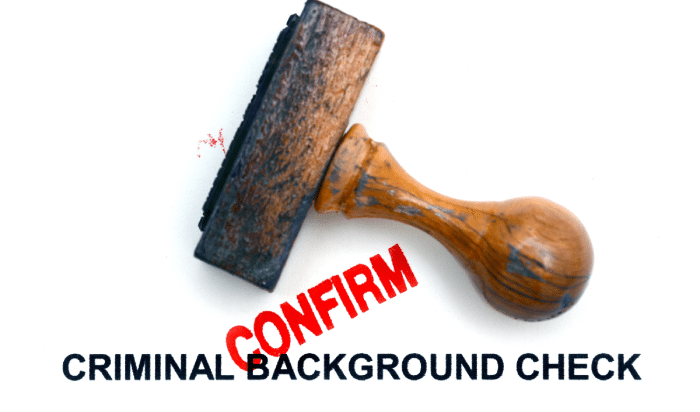






The stigma that comes with a criminal record can hold people back in many ways. You might struggle to find a reliable job, receive fair medical treatment or legal representation, or even find housing. This can make repositioning yourself back into society after being incarcerated difficult.
But in a society that values rehabilitation and second chances, it is crucial that we do everything we can to combat these injustices. One way we can do that is with criminal record sealing. The process of sealing records can be complex and tedious but well worth the effort in many cases.
Here at Rasmussen Law, we pride ourselves in our work in providing record sealing services to individuals with criminal records in Nevada. Give us a call today at (702) 745-4144 to find out more.
Having a criminal record sealed means that the record is made unavailable to the general public, and in some cases, to certain governmental entities.
In Nevada, sealing your criminal record is a fairly straightforward process that involves filing a petition to the court to have your record sealed. Once you have been approved, the changes go into effect immediately. Sealing a record means that the record is simply hidden from the general public, but it still exists. These records can typically still be accessible by certain government agencies, law enforcement, and other authorized offices
Expunging a record takes it a step further. Expunging typically involves the physical destruction or removal of the records related to the criminal offense. Once a record is expunged, it is as if the criminal incident never occurred, and you can legally state that they have not been convicted of that particular offense.
Like sealing, the process and eligibility criteria for expungement can seem daunting if it is not something you have done before. That is why consulting with an experienced legal team is highly recommended in these situations.
Record sealing is a highly regulated process and can be difficult to navigate. Whether or not you are eligible for records sealing typically depends heavily on the type of crime that was committed. Here are some examples of common types of crime that qualify for sealing:
Many of these crimes, while eligible, are considered on a case-by-case basis. The most common types of crimes that are successfully sealed are non-violent misdemeanors but with the proper case, a fresh start is possible with other types of crimes.
The specific eligibility criteria, waiting periods, and procedures for record sealing in Nevada can be complex, and they may change with future legislation. If you are seeking to seal your records, it is crucial that you consult with a legal professional to give yourself the best chance of having your petition approved.
While records are typically evaluated independently, there are some crimes that are not eligible to be hidden from public record. For the most-part these are all Category A felonies and other violent felonies.
In Nevada, crimes are typically classified into categories, ranging from Category A to Category E. Category A felonies are the most serious offenses and are not usually eligible to be sealed. Examples of crimes that might be classified as Category A felonies include murder, sexual assault, and kidnapping.
In criminal record sealing, sometimes patience is critical. You cannot apply to have your records sealed immediately after your case closes, though the specific waiting period varies depending on the classification of the crime.
Most misdemeanors, for example, require a 1 year waiting period before you can apply to have your record sealed. Other crimes, like Category C and D felonies, can require a 5-7 year waiting period. After 10 years, even some Category A felonies become eligible to be sealed as well.
The first thing to consider when planning to apply to have your criminal record sealed is the eligibility criteria. Are your convicted crimes included in the list of crimes that you can apply to be sealed? Have you met the waiting period since your case was closed?
If you have determined that your case is eligible, you must then file a petition with the district court in the jurisdiction where you were convicted. The petition should include details of your case such as the case number, an outline of the charges, and evidence of successful completion of any required sentence, probation, or parole.
This can be a complicated and tedious process that can be simplified by consulting a professional. An attorney with experience in criminal record sealing can guide you through each step.
Take your first step toward a fresh start today by calling Rasmussen Criminal Defense Lawyers. We specialize in guiding individuals through the complex process of record sealing in Nevada.
Don't let past mistakes define your future—contact us today to learn more about how our dedicated attorneys can assist you in sealing your criminal record.
The stigma that comes with a criminal record can hold people back in many ways. You might struggle to find a reliable job, receive fair medical treatment or legal representation, or even find housing. This can make repositioning yourself back into society after being incarcerated difficult.
But in a society that values rehabilitation and second chances, it is crucial that we do everything we can to combat these injustices. One way we can do that is with criminal record sealing. The process of sealing records can be complex and tedious but well worth the effort in many cases.
Here at Rasmussen Law, we pride ourselves in our work in providing record sealing services to individuals with criminal records in Nevada. Give us a call today at (702) 745-4144 to find out more.
Having a criminal record sealed means that the record is made unavailable to the general public, and in some cases, to certain governmental entities.
In Nevada, sealing your criminal record is a fairly straightforward process that involves filing a petition to the court to have your record sealed. Once you have been approved, the changes go into effect immediately. Sealing a record means that the record is simply hidden from the general public, but it still exists. These records can typically still be accessible by certain government agencies, law enforcement, and other authorized offices
Expunging a record takes it a step further. Expunging typically involves the physical destruction or removal of the records related to the criminal offense. Once a record is expunged, it is as if the criminal incident never occurred, and you can legally state that they have not been convicted of that particular offense.
Like sealing, the process and eligibility criteria for expungement can seem daunting if it is not something you have done before. That is why consulting with an experienced legal team is highly recommended in these situations.
Record sealing is a highly regulated process and can be difficult to navigate. Whether or not you are eligible for records sealing typically depends heavily on the type of crime that was committed. Here are some examples of common types of crime that qualify for sealing:
Many of these crimes, while eligible, are considered on a case-by-case basis. The most common types of crimes that are successfully sealed are non-violent misdemeanors but with the proper case, a fresh start is possible with other types of crimes.
The specific eligibility criteria, waiting periods, and procedures for record sealing in Nevada can be complex, and they may change with future legislation. If you are seeking to seal your records, it is crucial that you consult with a legal professional to give yourself the best chance of having your petition approved.
While records are typically evaluated independently, there are some crimes that are not eligible to be hidden from public record. For the most-part these are all Category A felonies and other violent felonies.
In Nevada, crimes are typically classified into categories, ranging from Category A to Category E. Category A felonies are the most serious offenses and are not usually eligible to be sealed. Examples of crimes that might be classified as Category A felonies include murder, sexual assault, and kidnapping.
In criminal record sealing, sometimes patience is critical. You cannot apply to have your records sealed immediately after your case closes, though the specific waiting period varies depending on the classification of the crime.
Most misdemeanors, for example, require a 1 year waiting period before you can apply to have your record sealed. Other crimes, like Category C and D felonies, can require a 5-7 year waiting period. After 10 years, even some Category A felonies become eligible to be sealed as well.
The first thing to consider when planning to apply to have your criminal record sealed is the eligibility criteria. Are your convicted crimes included in the list of crimes that you can apply to be sealed? Have you met the waiting period since your case was closed?
If you have determined that your case is eligible, you must then file a petition with the district court in the jurisdiction where you were convicted. The petition should include details of your case such as the case number, an outline of the charges, and evidence of successful completion of any required sentence, probation, or parole.
This can be a complicated and tedious process that can be simplified by consulting a professional. An attorney with experience in criminal record sealing can guide you through each step.
Take your first step toward a fresh start today by calling Rasmussen Criminal Defense Lawyers. We specialize in guiding individuals through the complex process of record sealing in Nevada.
Don't let past mistakes define your future—contact us today to learn more about how our dedicated attorneys can assist you in sealing your criminal record.
Text Attorney Chris Rasmussen for an immediate response at (702) 807-6231. If you have been arrested, or injured, connect with us and schedule a free consultation.